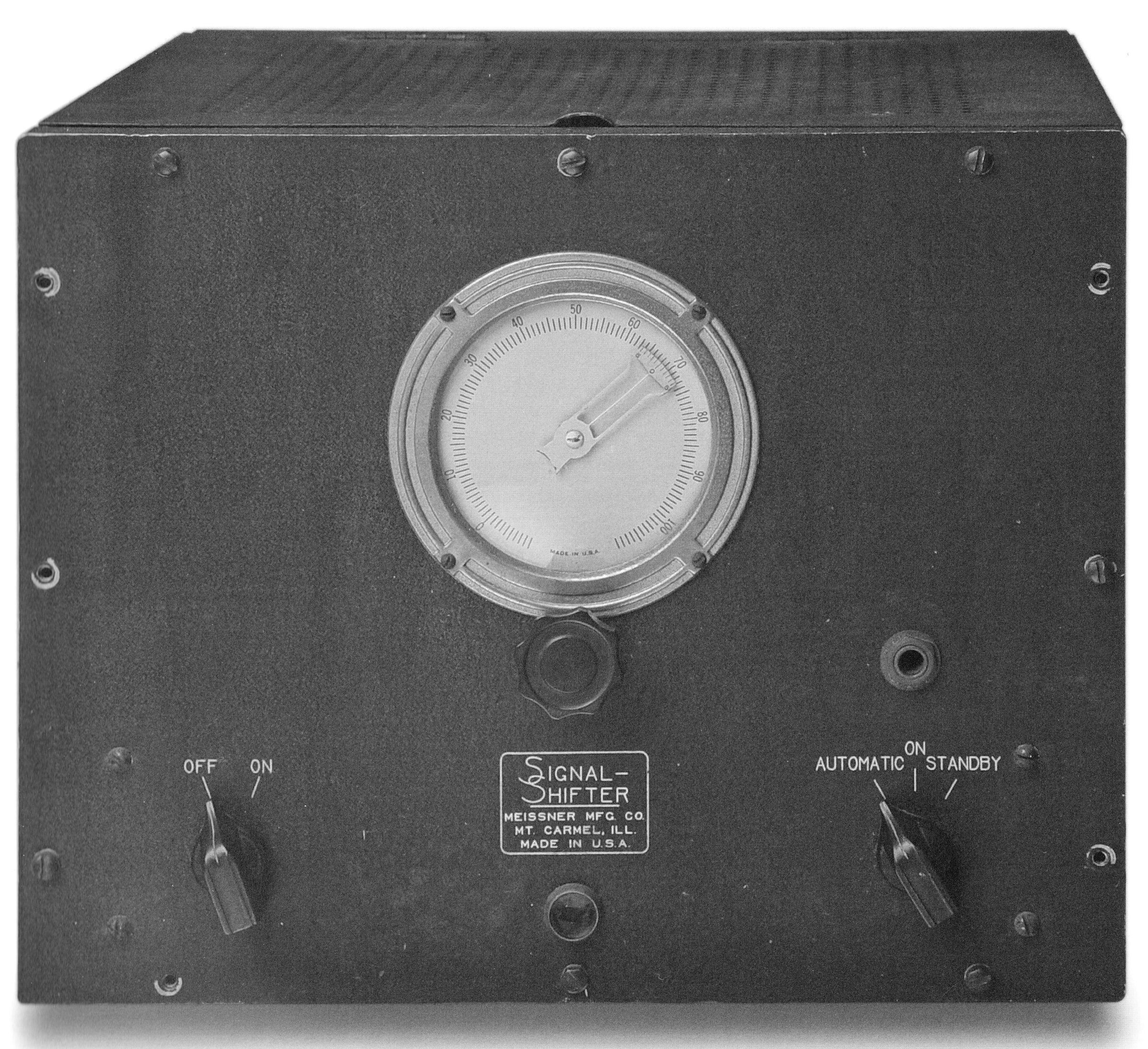Note
QST, Mar 1938, p. 97.
Lafayette catalog number 73, p. 113.
QST, Jan 1940, p. 95. (De Luxe version)
Radio, May 1941, p. 87. (use as a transmitter)
QST, Jul 1943, pp. 96. (Extended range)
QST, Sep 1946, p. 119. ("EX" first seen)
Lafayette catalog number 88 (1947), p. 103. (called model 9-1090)
QST, Jan 1947, p. 91. (slightly different photo)
QST, Jun 1947, p. 139. (spec for "EX").
QST, Aug 1948, p. 82. (a few details)
Lafayette-Concord (1949 #949), p. 141.
Allied Radio catalog 1951 (copyright 1950), p. 142. (EX model 10-1207)
Allied Radio catalog 1952 (copyright 1951), p. 139.
Kit - $9.95
Assembled - $11.95
Sometimes seen as "HY-Q-75"
The Signal Shifter was Meissner's name for a VFO. It delivers about 7.5 watts of driving power on 160, 80, 40, and 20 meters (less on 10 meters) and uses a 6F6 oscillator and 6L6 buffer.
Uses one set of three coils per band. Coil sets were sold separately for $2.50 each.
Features a built-in power supply.
Available in "standard" and "de luxe" models. (Note that Meissner used "de luxe" instead of "deluxe.")
The standard model has a plain black crinkle finish, a smaller friction type dial, and does not include voltage regulation or a key click filter. It is recommended for AM operation, but not for CW. For 120 VAC operation only.
Tubes: (1) 6F6, (1) 6L6, (1) 80.
The de lux model has an "extremely accurate" dial, voltage regulation, and a key click filter. Recommended for both AM and CW. Available in black or gray baked enamel finish. Available for 120 or 240 volts, requiring different transformers.
Tubes: (1) 6F6, (1) 6L6, (1) 5X4, (1) VR-105, (1) VR-150
(See QST, Jun 1947, page 139)
A new version in a new form factor was introduced in 1946, referred to as "EX." Output is 6 watts on all bands. Output impedance is 300 Ω. Can be keyed in either the oscillator or amplifier. Can be crystal controlled and uses crystals with a 1/2" or 3/4" pin spacing. Illuminated dials have a 0–500 calibration and vernier drive. Available with an internal or external power supply, and in cabinet or rack mount configurations. This version was later available as a kit. See QST, Oct 1948, page 94.
Tubes: (1) 6V6, (1) 807, (1) 6U5 tuning eye, (1) VR-150, (2) 5Y3
